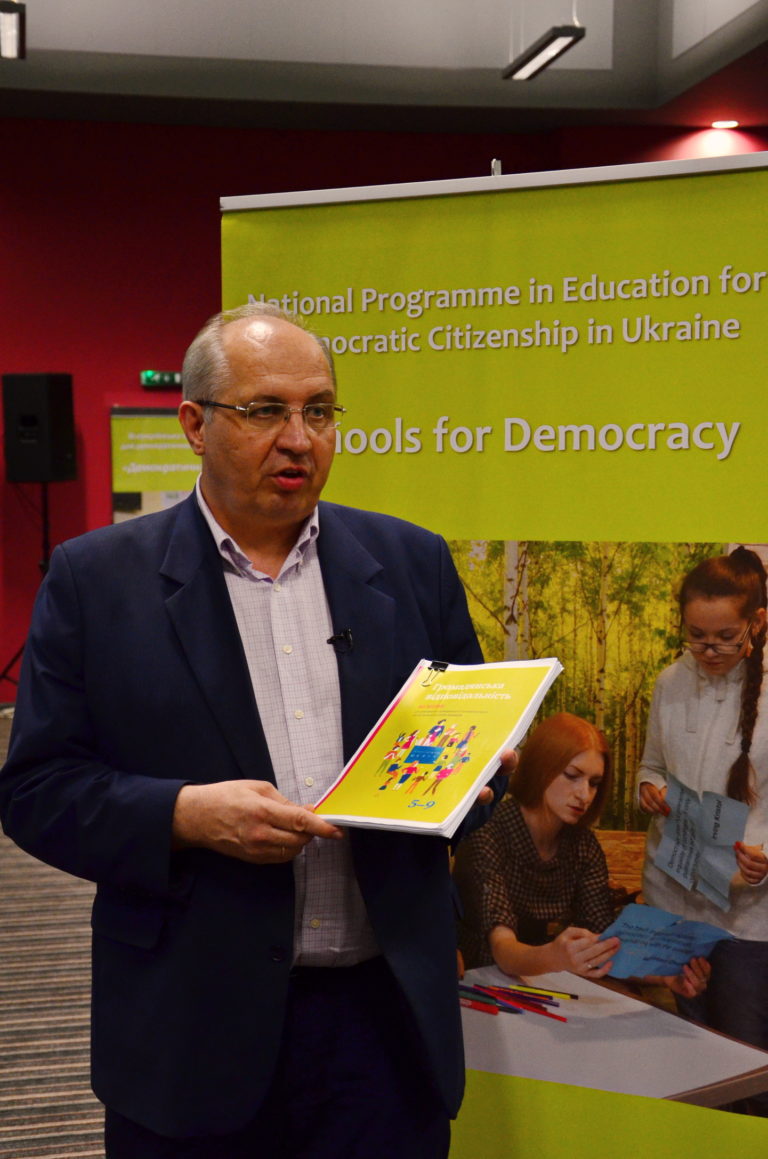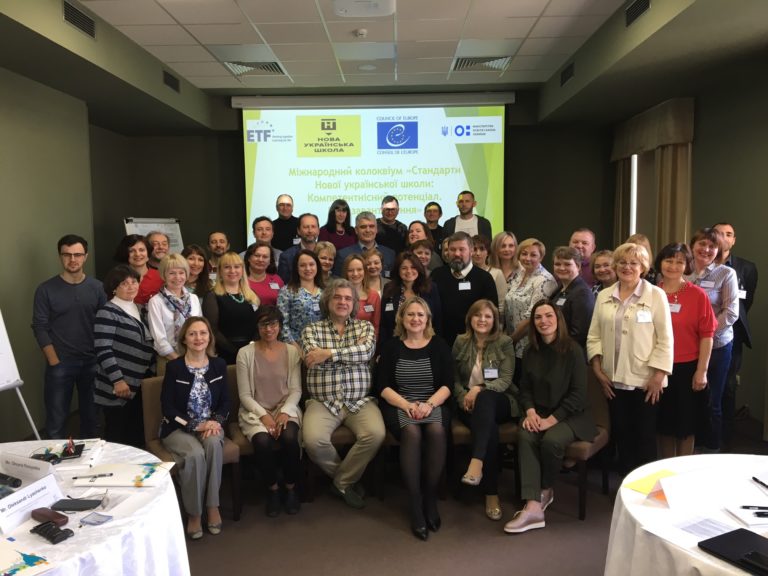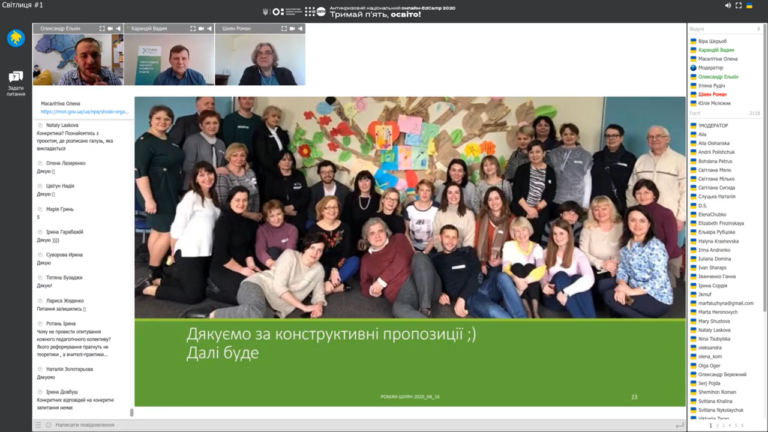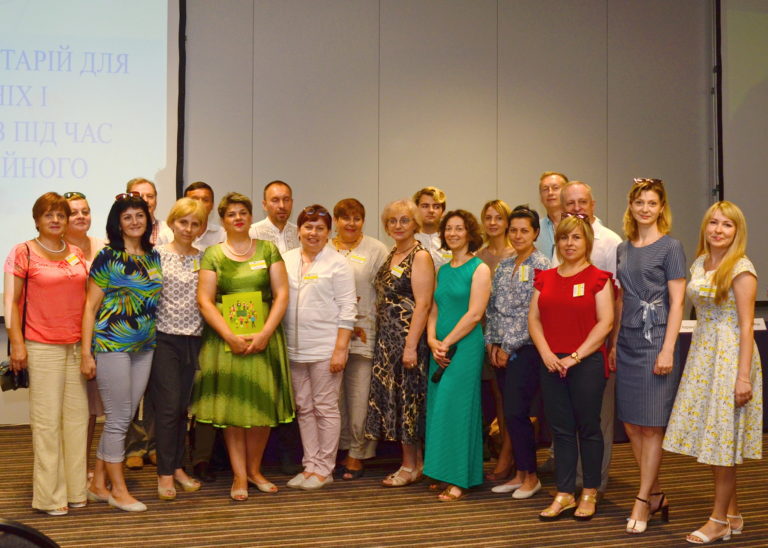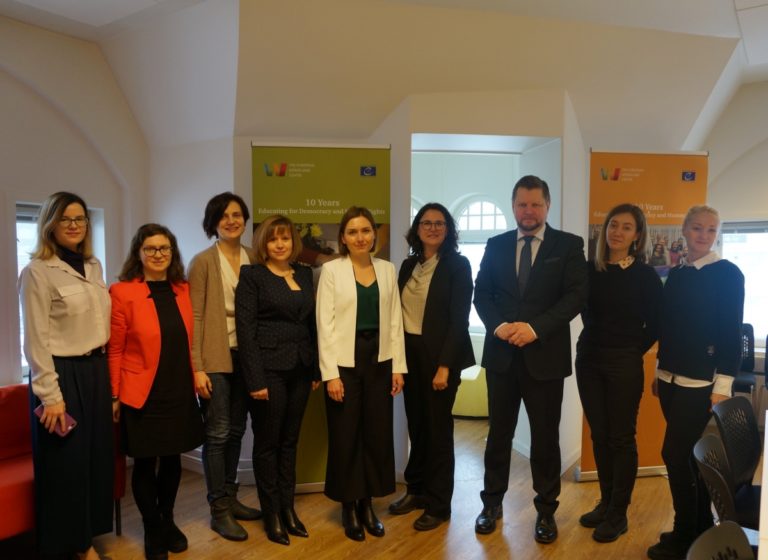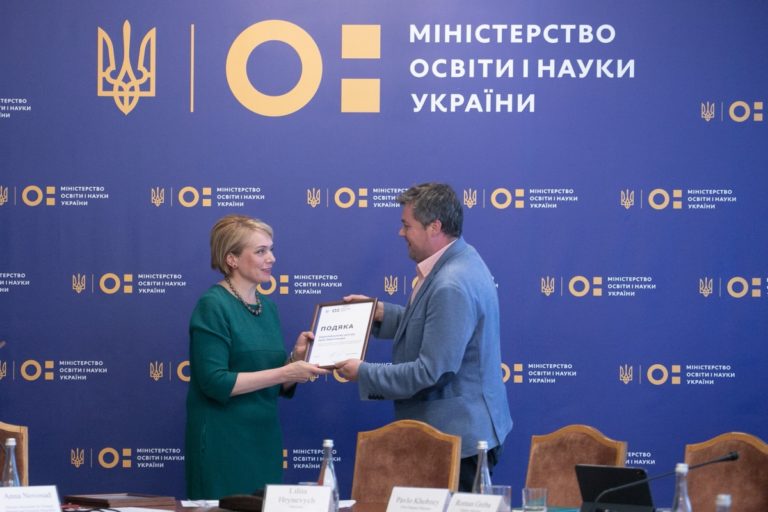In 2016 Ukraine embarked on a most comprehensive educational reform in its history as an independent state, proclaiming the building of the New Ukrainian School. EWC contributes to the development and implementation of key policy documents facilitating the reform in the country in line with key principles of education for democratic citizenship and human rights.
Contributed to the new quality standards for schools
107
Oral and written contributions
to policy makers
Contributed to the New Curriculum
One of our most important contributions is the support for development of the new competence-based national curriculum in Ukraine for primary and for basic secondary school (5-9 grades), focusing on fostering democratic competences across all subjects.
New National Curriculum: Support for Development and Piloting
Since 2017 EWC has cooperated closely with the Working Group on the New National Curriculum by providing expert and operational support. Experience exchange between policy-makers in Norway and Ukraine, training for curriculum developers, expert recommendations and piloting of the new approaches have been a valuable and recognized contribution to Ukraine’s educational reform.
In 2018, the National Education Standards for Primary School were adopted, outlining key approaches to teaching and learning as well as listing key competences and learning goals for the primary school. The document offers a totally new philosophy of learning by shifting the focus from the subject to the child, encouraging critical thinking, exploration and self-motivation. Teachers have received more freedom in choosing teaching methods, and competence-based learning goals have opened for a better cohesion between and integration of separate subjects. The new Curriculum also encourages more focus on formative assessment as a means for competence development.
Another important policy document the EWC contributes to is the new National Curriculum for 5-9 grades which has the aim to continue the transformations launched earlier in the primary school. The Draft Document is expected to be presented to the public in spring 2020.
In 2018-2020, a piloting study (registered by a Ministerial Decree as a national innovation project) has been carried out in 62 schools to implement approaches to development and assessment of civic competences outlined in the new Curriculum. After the first year of facilitated piloting, tests for 7th grade students have revealed positive impact of democratic teaching and learning methods on their civic competences.
New Quality Standards for Schools
Support of the State Service of Education Quality and its Working Group on development of the new national quality standards for schools have resulted in development of the new Quality Standards for School Education adopted in 2019.
The new quality criteria ensure democratic principles and respect of human rights across four areas of school life: learning environment, students, teachers and governance. They will be used for building of an internal quality control system at schools and carrying out external institutional audits.
Introduction of the new quality criteria has opened for more focus on inclusive and democratic learning environment at school, including the work on prevention of bullying, encouraged shared decision-making, democratic leadership and higher student participation.
Prior to the document’s adoption, EWC piloted the new quality standards at 12 schools in cooperation with the State Service of Education Quality helping to accommodate practitioners’ feedback in the document.
